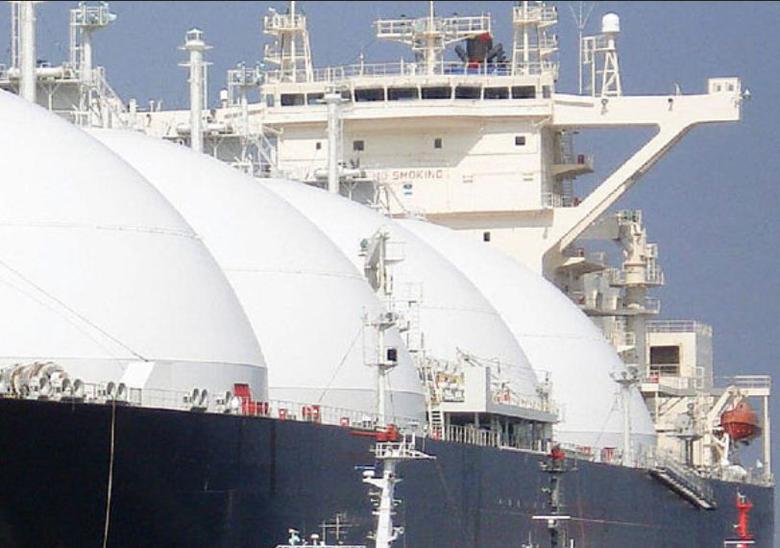
LNG PRICES DOWN

Spare a thought for anyone who bet on a recovery in liquefied natural gas (LNG) prices after last year's 45% plunge.
LNG to northeast Asia, home to the world's biggest consumers, plunged 27% this year, outpacing Brent's 23% slump as of Wednesday. While analyst estimates show that crude will recover in 2016, prices for the super-chilled fuel will probably extend declines by as much as 23%.
As the US gears up to start a new LNG plant for the first time in more than four decades and output from Australia to Angola increases, the glut will peak in 2018, according to Sanford C. Bernstein & Co. LNG, which Goldman Sachs Group said will this year overtake iron ore as the world's second most valuable commodity by trade, fell to its lowest level since 2010 in October, according to World Gas Intelligence in New York.
"The biggest story is the increase in LNG export capacity," said Mike Fulwood, principal for global gas at Nexant's Energy and Chemicals Advisory in London. Capacity will increase 14% through the fourth quarter next year, "while demand is increasing much more slowly in the main LNG importing countries."
The outlook for prices, global demand as well as new capacity from US and Australia are all topics that will be discussed by executives, traders and analysts this week at the World LNG Summit in Rome.
As the price plunge ripples through markets, the growing output is impacting the world's biggest producers of the fuel. Qatar waived a $1 billion penalty for lower imports under an Indian contract, while Russia's Gazprom offered its first-ever gas auctions in Europe in September.
LNG for delivery in the next four to eight weeks in Asia cost $7.40/MMBtu as of Nov. 30, according to WGI. The spot price may fall as low as $5.70 next year, according to the survey of nine traders, executives and analysts. Brent crude may average $57.30/bbl next year, according to 48 estimates on Bloomberg. It traded at $44.06 on Wednesday.
Alaska Plant
Cheniere Energy's Sabine Pass will be the first US export facility since ConocoPhillips started a plant in Alaska in 1969. As a result of a boom in production from shale formations, the US has become the world's biggest oil and gas producer, also set to transform itself from an importer into a net exporter of LNG.
"The excess gas that exists in the US will find its way out and will probably mean lower prices for the rest of the world," Frank van Doorn, head of gas and LNG trading at Vattenfall's trading unit, said in an interview in Barcelona on Nov. 25.
While the US export facilities will add another 4.5 million metric tons, next year's main addition will be in Australia, where another 27.2 million tons will come online. That compares with a total planned capacity of 326 million tons. Angola will also restart a plant that's been shut since April 2014 because of technical issues.
The global oversupply will reach as much as 31 million tons, or 8 percent of capacity, by 2018, according to Bernstein.
The glut is widening as Japan, South Korea and China aren't importing as much as they used to amid slower growth, over- contracting and expansion of nuclear capacity. China's LNG imports may this year decline for the first time since they started a decade ago, according to Sberbank in Moscow.
There may be some hope on the horizon for LNG producers because of the fuel's partial link to crude, even if there's a delay of several months before a change in oil prices filters through to LNG contracts.
If oil recovers to more than $70/bbl by the end of next year, LNG would probably rise to more than $10/MMBtu, according to Bernstein. It traded at a record $19.70 in February last year, according to WGI's assessments.
New importers such as Pakistan and Egypt will be "the most positive short-term stories" for consumption, Energy Aspects Ltd., a London-based consultant to the industry, said last month in a report.
"The really big question that frankly nobody can answer is whether lower prices will create more demand," said Jonathan Stern, founder of the Oxford Institute for Energy Studies. "If there isn't, the prices will continue to go down."
-----
More:




